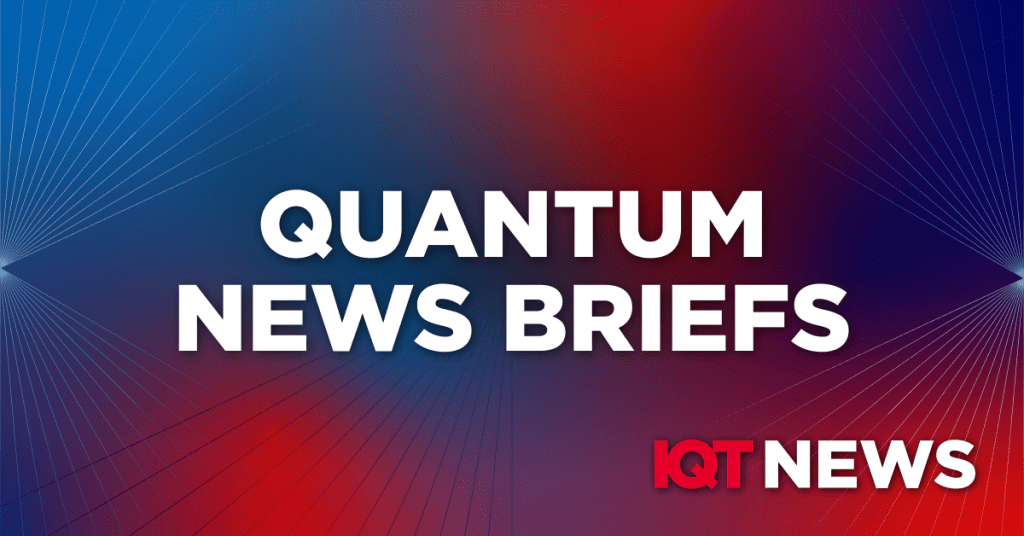Boeing Pioneering Quantum Communications Technology with In-Space Test Satellite
This experiment is attempting to demonstrate quantum networking in space, helping to better understand how these networks can be built across vast distances and remain highly synchronized.
“We’re making a big bet on quantum technology,” said Jay Lowell, chief engineer for Boeing’s Disruptive Computing, Networks & Sensors organization. “Quantum entanglement swapping underpins the communication of the future, expanding quantum networks beyond simple point-to-point communication. We’re launching Q4S to prove it can be done in orbit.”
Entanglement swapping relies on quantum teleportation – a method where the information carried by a particle can be transferred without having to move the particle itself across the distance. Albert Einstein famously referred to this ethereal concept as “spooky action at a distance,” underscoring the complex nature of quantum mechanics.
In Other News: Breaking Defense reports “Australia’s Military Contracts for quantum Clocks to Aid ‘Maritime Domain Awareness’”
The deals, announced here this morning, mean Australia will buy QuantX Labs’ quantum optical atomic clocks “to support superior decision advantage and enhanced maritime domain awareness” for the Australian Defense Force, an ADF statement said.
The head of operations for QuantX, Sandy Sinclair, said the announcement of the $2.7 million ($1.8 million USD) in deals “is worth writing about because it’s the first demonstration of quantum technology under AUKUS Pillar II.”
The ADF statement carefully notes that these “are key objectives under AUKUS Pillar II,” but it does not claim that they are being done as part of the second pillar, which focuses on a range of advanced technologies, including quantum, artificial intelligence and autonomy.
TelecomTV reports: “BT & Toshiba team with Equinix for quantum-safe connectivity”
BT together with existing partner Toshiba has teamed up with Equinix to enable quantum-secure connectivity between the datacentre operator’s facilities in Slough, located west of London, and Canary Wharf, in the financial district of the UK capital according to Ray Maistre in September 13 TelecomTV.
BT and Toshiba have already established a quantum-safe metro network, whereby user data is protected as it traverses the optical fibres using quantum key distribution (QKD), linking London and Slough.
Now, enterprises using Equinix’s Slough and Canary Wharf datacentres will be able to connect to the BT/Toshiba network and try the service. “Located in the heart of London’s financial services district and an area densely populated by businesses, the two sites provide ideal points for a wide range of organisations to trial ‘quantum keys-as-a-service’ and [the move] marks a significant step towards making quantum-secured communications more accessible,” noted BT.
In Other News: Globes reports: “Photonic Quantum Computing company Quantum Source raises $50M Investment Round”
Quantum computing startup Quantum Source has raised a $50M Series A investment round according to Globes September 10 article by Meytal Vaizberg. The round was led by Eclipse, with participation from Standard Investments, Level VC, Canon Equity, as well as existing investors Pitango First, Grove Ventures, 10D, and Dell Technologies Capital. This brings the total amount raised by Quantum Source to $77 million.
Founded in 2021, the Israel-based company is developing photonic quantum computers. It says its technology harnesses single atoms trapped on a proprietary photonic chip to allow deterministic photon generation and entanglement. Former Prime Minister Naftali Bennett is a member of the company’s board of directors.
“This round is a vote of confidence in our approach to making scalable, useful quantum computing a reality, and a testament to the broader opportunity in quantum computing,” said Oded Melamed, co-founder and CEO of Quantum Source. “Our game-changing approach, which combines photonic and atomic qubits, will propel quantum computing further toward commercialization, by making large-scale, fault-tolerant quantum computers available to corporations at a practical cost.”
